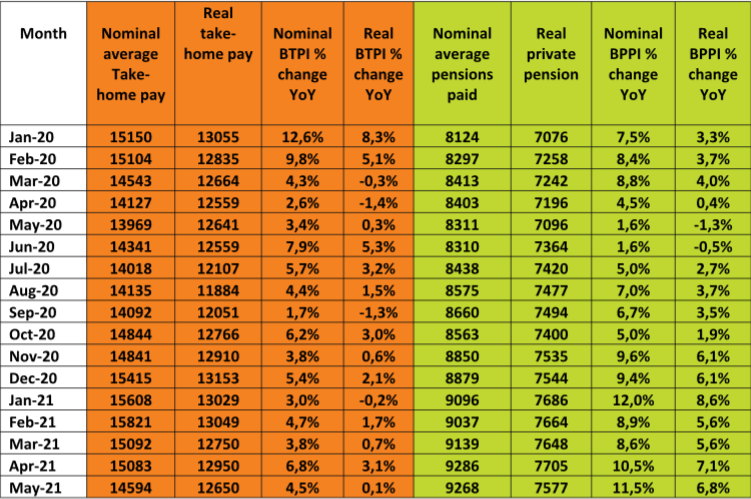
Visits: 1
Understanding Bank Interest Rates
Bank interest rates refer to the percentage of money a bank pays you for keeping your funds in a savings or deposit account. The interest rate is a crucial factor to consider when choosing a bank, as it determines how much your savings will grow over time. All Bank Interest Rates List
Types of Bank Accounts
- Savings Accounts: These typically offer lower interest rates compared to other accounts but provide easy access to your funds.
- Fixed Deposit Accounts: These accounts offer higher interest rates but require you to deposit a specific amount of money for a fixed period.
- Money Market Accounts: These accounts often provide competitive interest rates and allow you to write a limited number of checks.
- Certificate of Deposit (CD) Accounts: Similar to fixed deposits, CDs offer higher interest rates but lock your funds for a specified period.
Factors Influencing Interest Rates
Several factors influence bank interest rates:
- Central Bank Rates: The central bank’s benchmark interest rate affects the rates banks offer to customers. When the central bank raises rates, banks may increase their own rates, and vice versa.
- Economic Conditions: Inflation, economic growth, and market conditions play a role in determining interest rates. Higher inflation may lead to higher interest rates.
- Bank Policies: Each bank sets its interest rates based on its financial goals, competition, and customer base.
- Account Type and Balance: Different types of accounts and higher balances may lead to higher interest rates.
Examples of Bank Interest Rates (As of September 2021)
- Guaranty Trust Bank (GTBank): GTBank offered around 2.5% to 3.5% interest rates on savings accounts.
- Access Bank: Access Bank provided savings account interest rates ranging from 1.15% to 3.15%.
- First Bank of Nigeria: First Bank’s savings account interest rates were approximately between 2.5% and 3.5%.
- Zenith Bank: Zenith Bank offered savings account interest rates ranging from 1.15% to 3.15%.
- Stanbic IBTC Bank: Stanbic IBTC’s savings account interest rates were around 2.75%.
Please note that these rates are indicative and can vary over time. Before opening an account, it’s advisable to check with the specific bank for the most up-to-date information on their interest rates.
Conclusion
Bank interest rates are a critical factor to consider when choosing a savings or deposit account. While they may not be the sole determinant, understanding how interest rates work and comparing rates among different banks can help you make informed decisions to grow your savings over time. Always stay updated with the latest information from your chosen bank to make the most of your financial choices.
Frequently Asked Questions (FAQs) – Bank Interest Rates
1. What are bank interest rates?
Bank interest rates refer to the percentage of money a bank pays you for keeping your funds in a savings, deposit, or investment account. It’s the compensation you receive for allowing the bank to use your money.
2. How do bank interest rates work?
When you deposit money in a bank account, the bank uses that money to lend to borrowers or invest in various financial instruments. The interest you earn is a portion of the profit the bank makes from these activities.
3. Do all banks offer the same interest rates?
No, interest rates can vary significantly from one bank to another. Different banks have different strategies, financial health, and competition, which can impact the rates they offer.
4. What’s the difference between a savings account and a fixed deposit account?
A savings account offers lower interest rates but provides easy access to your funds. A fixed deposit account offers higher interest rates but requires you to lock your money in for a predetermined period.
5. How often do banks change their interest rates?
Banks can adjust their interest rates based on economic conditions, central bank policy changes, and their own financial goals. Rates can change frequently or remain stable for extended periods.
6. Can I negotiate my interest rate with the bank?
In some cases, banks may offer flexible rates for larger deposits or long-term commitments. It’s worth asking your bank if they have any negotiation options.
7. Do central bank rates affect my personal savings interest rates?
Yes, central bank rates can indirectly influence the interest rates banks offer to customers. When the central bank raises or lowers its benchmark rates, banks may adjust their rates accordingly.
8. How do economic conditions impact interest rates?
Higher inflation and robust economic growth can lead to higher interest rates as banks seek to maintain the value of their interest payments in real terms.
9. Can I earn more interest with a higher account balance?
Yes, many banks offer tiered interest rates, where higher account balances earn higher interest rates. This can be an incentive for customers to save more.
10. Are bank interest rates fixed or variable?
Both types exist. Fixed interest rates remain constant for a specific period, while variable rates can change periodically based on market conditions or central bank policy.
11. Do online banks offer better interest rates than traditional banks?
Online banks often have lower operating costs and may offer higher interest rates as a result. However, this can vary, and it’s important to compare rates from both types of banks.
These FAQs address common questions about bank interest rates and how they work. Keep in mind that interest rates can vary widely depending on the type of account, the bank, and economic conditions. Always research and compare rates before choosing a bank account to ensure you’re making the best financial decision for your needs. All Bank Interest Rates List


%20(1).png)


